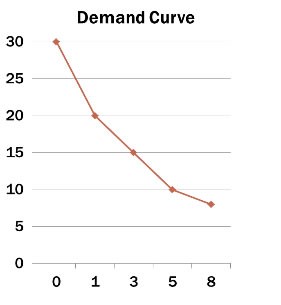Unit 2 Consumers, Households, and Demand in a Market Economy
1/18
Earn XP
Description and Tags
Name | Mastery | Learn | Test | Matching | Spaced | Call with Kai |
|---|
No analytics yet
Send a link to your students to track their progress
19 Terms
Demand curve
a graph showing the quantity of demand at each price that might be used in the market at a given time.
Shifts
Change in demand
Goods
(groceries, gas, hair cut, etc.)
Causes for change of demand
change in quantity demanded, or TRIBE (tastes related income buyers expectations)
Complements
products which are bought and used together.
elastic
when a change in price causes a large change in demand.
inelastic
when a change in price causes a small change in demand.
Unit Elastic
proportional change in price and quantity
Substitutes
a product or service that consumers see as essentially the same or similar-enough to another product.
Total expenditures
The sum of the price paid for one or more products or services multiplied by the amount of each item purchased.

Be able to interpret graphs
Demand Curve and Individual Demand Schedule
Graph
one method that economists use to understand the sometimes complicated elements of demand.
Real capita GDP
an economy's production per person. Often viewed as an indicator of the population's general welfare and standard of living and is a good indicator of a country's economic development when compared to other economies.
GDP
(Gross domestic product) an economic snapshot of a country, used to estimate the size of an economy and its growth rate.
Standard of living
the level of wealth, comfort, material goods, and necessities available to a certain socioeconomic class or geographic area.
Human capital
the economic value of a worker's experience and skills. Human capital includes assets like education, training, intelligence, skills, health, and other things employers value such as loyalty and punctuality.
Relationship between price and quantity
Law of Demand
Determinants of Elasticity
Is the product a luxury or a necessity?
What is the time horizon? Do you need the product immediately?
Does the purchase comprise a large or small part of your income?
Are there close substitutes?
How big is the market?
Diminishing marginal utility
the extra usefulness/satisfaction one gets from getting or using one more unit of a product.